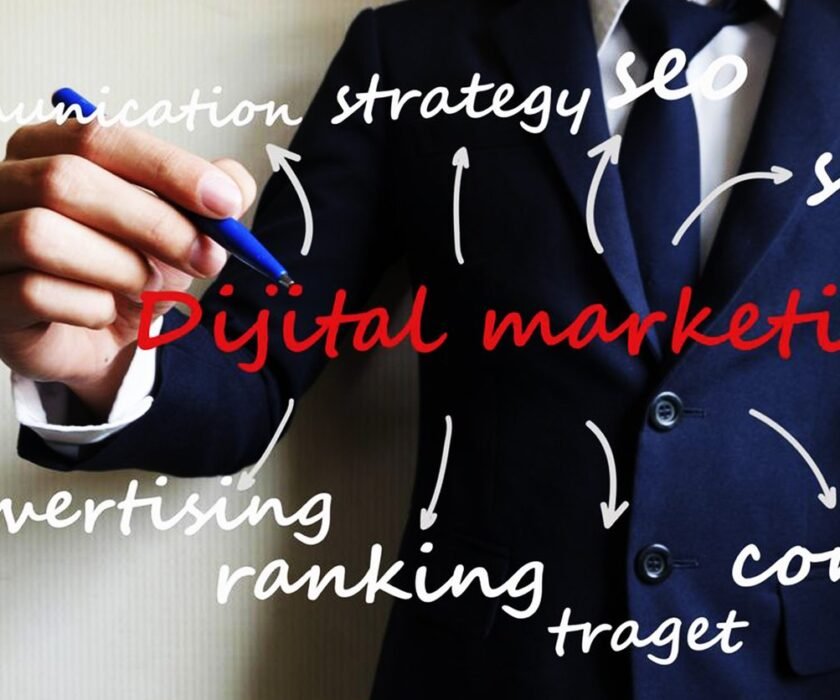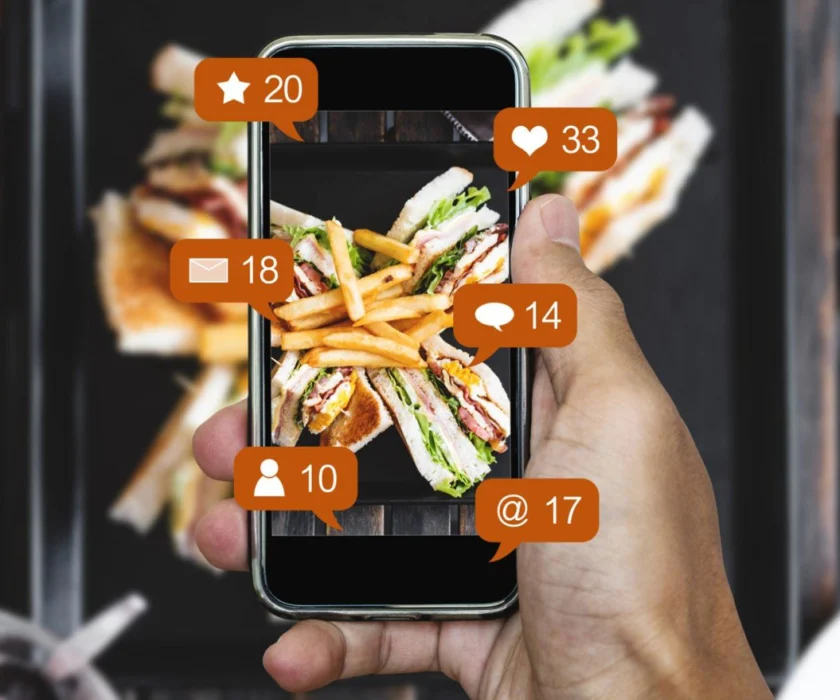It’s expected that people frequently mix social media marketing and digital marketing. They both rely on digital platforms and technology to market their goods, services, and brands.
However, understanding the differences between digital marketing vs. social media marketing is essential for marketers and business executives.
They use the same social media platforms and tools for their marketing.
Additionally, the marketing experts that carry out digital and social media marketing initiatives sometimes have related backgrounds and specialties.
But despite these similarities, the two are very different from one another.
Social media and digital marketing may help you increase brand awareness and online customer engagement for your goods and services.
But what is the difference between social media marketing and digital marketing?
We have all you need to know about the differences between social media marketing and digital marketing.
What is Digital Marketing?
Digital marketing is promoting a brand or its goods through digital tools.
It involves online and offline media, such as television, podcasts, billboards, commercial advertisements, text messaging, etc.
Digital marketing includes a lot of online marketing. Digital marketing includes Search Engine Marketing (SEM), content marketing, and email marketing.
What is Social Media Marketing?
Social media marketing is used on the internet and social media platforms to advertise goods, services, or brands.
It includes creating and sharing content on social media platforms to engage target audiences, enhance brand recognition, increase website traffic, and ultimately accomplish marketing objectives.
Facebook, Twitter, Instagram, Youtube, TikTok, and Pinterest are a few of the most popular social networking sites.
What is the Difference Between Social Media Marketing and Digital Marketing
Digital marketing is a broad phrase that includes Social Media, SEO, Email Marketing, Content Marketing, and more.
Social media marketing is a form of digital marketing. It includes marketing on platforms like Facebook, Instagram, and others.
Here are some key differences between digital and social media marketing:
- Online Platforms
The online platforms utilized for advertising your goods and services are one of the significant differences between digital marketing and social media marketing.
Digital Marketing:
With the help of digital marketing, which focuses on various online platforms, you may connect with more individuals in your target market online.
You may increase your reach with digital marketing by using a variety of online channels, such as Search engines, Emails, Websites, Social media and more.
Digital marketing may help you put your brand in front of your target customers, whether they are looking through their email or searching Google for items.
Social Media Marketing:
A social media marketing strategy concentrates on social media as one online platform.
Social media marketing is only possible on social networks, which fluctuate in popularity, the quality of their material, and the types of users they attract.
Social media platforms like Facebook, Twitter, Instagram and others could be a great strategy to boost your sales and conversions.
- Goals
The objectives of digital marketing and social media marketing differ significantly. Both frequently aim to boost a company’s sales and profits.
Although digital marketing usually achieves this objective more quickly than social media marketing separately.
Digital Marketing Goals:
- Increasing awareness of a brand through advertising and relevant content.
- Adding benefits to customers’ lives makes them purchase your products and services.
- It promotes a business’s products with strategically placed material on multiple websites.
- It positions the company as an expert in the field through online content that engages and increases sales and advertising on search engines.
Social Media Marketing Goals:
- Establishing brand loyalty and confidence through providing excellent customer service that includes quick responses and sincere interactions.
- Posting content that inspires customers to buy the brand’s goods or services as their next step.
- Improving the reputation of a brand.
- Providing behind-the-scenes videos, strategic promotions, and live-streaming material to give viewers additional access to the company.
- Target Audience
While social media and digital marketing both provide you with the ability to develop focused marketing messages for high-value customers, how they do so might vary.
Digital Marketing Audience:
Digital marketing helps you target your ideal customers in several different ways.
- You may build customized marketing messages for social media and other online platforms like search engines and websites.
- Spend money on PPC advertisements that target consumers depending on the search terms they enter into search engines.
- Use emails to inform your email subscribers about new items.
- Make personalized content that focuses on individuals’ problems.
- Create advertisements that people may see on various web channels depending on their interests and hobbies.
Social Media Marketing Audience:
- To showcase your company’s individuality and get more users to follow your brand, you may publish engaging posts on social media and provide information that gets people’s attention.
- If you want to reach more people on social media who aren’t already following your company, you may make targeted social media advertising. These advertisements may appear while a person scrolls through their updates in their newsfeed.
- Social media advertisements allow you to target particular categories of customers depending on demographics, hobbies, interests and more.
- Conversion Rates
Social media may have low conversion rates, which leads some marketers to wonder why they should keep using these channels for their campaigns.
However, compared to social media, digital marketing is typically simpler to collect data and analyze return on investment (ROI).
Consider a company that produces exciting material on social media that appeals to its audience as an example of successful social media efforts with a poor conversion rate in analytics.
The target audience may interact with the brand’s content but never click a link on social media to make a purchase. Instead, they look for the brand’s website using a search engine or enter the URL into their browser to make purchases.
Although social media persuades the customer to buy anything, it will unlikely be credited for this conversion.
Conclusion
If you’re still comparing digital marketing vs social media marketing, remember that social media marketing is only one aspect of digital marketing. Depending on your firm’s objectives, each can contribute something significant to your campaign.
Although social media is more current, it has quickly emerged as one of many companies’ most essential marketing methods.
Almost no brand or business should devote all of its attention to social media marketing, but it should be a key component of your strategy in the future.
Your social media and other digital marketing activities should ideally operate in sync to reach the most prospective clients.
Take Your Business One Level Up With Digital And Social Media Marketing Services From Byteteck Consulting.
Are you ready to use effective social media and digital marketing methods to increase revenue and sales for your company? ByteTeck Consulting can help with that.
ByteTeck Consulting is a top provider of digital marketing services with a team of trained specialists. They focus on providing a wide range of services to help businesses develop and succeed online.
Among the services provided are search engine optimization (SEO), pay-per-click (PPC) marketing, social media marketing, email marketing, and content marketing.
ByteTeck Consulting can help you reach your marketing goals whether you run a small or large business.
Contact us today to learn more about our services.
Is social media content the same as digital marketing?
The term “social media content” describes specific information shared on social media sites, such as text, photographs, videos, or links.
On the other hand, “digital marketing” is more general and refers to a range of methods and platforms used to advertise goods, services, or brands online.
What is the difference between social media and digital media?
Any online or offline strategy utilized to reach a broad audience is digital media. Google and Amazon are two examples of digital media platforms.
Social media is a subset of digital media, although it can only be used online.
Is social media marketing a form of digital marketing?
Is Facebook considered digital marketing?
Due to its vast reach and robust ad features, Facebook is generally seen as being a crucial element of digital marketing.
Is Instagram marketing digital marketing?
As a popular social media site, Instagram offers various services and resources that companies may use for marketing.
Businesses using Instagram may set up a profile for their company, post aesthetically attractive material, interact with users through comments and direct messages, and launch specialized advertising campaigns.
What’s an example of digital marketing?
In this case, the business may compile a segmented list of clients who have previously expressed interest in similar products or signed up for their newsletter.
Then they would devise a convincing email showcasing the unique qualities and advantages of the new product. The email could contain a call to action, such as a URL to the product page on their website or a unique coupon code.
What are the 3 types of digital media?
Earned media: This term describes the natural fame and exposure that a brand or company obtains via word-of-mouth, viral sharing, media coverage, or client referrals.
It amounts to free advertising obtained through favourable encounters, remarks, or recommendations from outside sources.
Paid media: Consists of using paid advertisements to market a company, item, or service. It consists of several types of advertising, including display advertisements, social media ads, influencer partnerships, sponsored content, and search engine marketing (SEM).
Paid media broadens reach, visibility, and interaction with target audiences. It demands financial investment.
Owned media: These are the digital resources and channels a company or brand controls completely.
This covers all privately held websites, blogs, social media accounts, email lists, and other venues where a business may generate and spread information to its audience without relying on other sources.
Is TikTok a digital media?
Is YouTube a social media or digital marketing?
Because it allows users to build profiles, connect with others, and engage in social interaction through comments, likes, and subscriptions,
As a digital marketing tool, it provides chances for companies and people to use video material to market their goods, services, or individual brands. Companies may use YouTube’s statistics to track performance and successfully reach their target audience by setting up branded channels, uploading promotional videos, running targeted adverts, and more.
How do I become a digital marketer?
Obtain hands-on experience by taking on internships or entry-level jobs. Create a portfolio to show off your abilities and keep up with business trends.
Connect with other industry experts, and always be open to learning new things.
Is digital marketing a good career?
As organizations place a greater emphasis on their online presence and on reaching their target audiences through technology, digital marketing is in high demand.
It provides various professional options in multiple fields, including positions like content marketers, social media managers, SEO specialists, and more.




